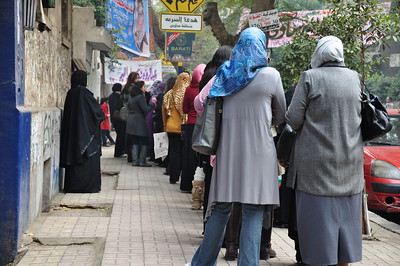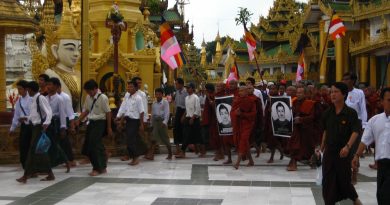Egyptian Opposition Candidate Targeted with Spyware
Yasmin Obeidallah
Staff Writer
The leading opposition Egyptian presidential candidate, Ahmed Altantawy, was targeted with spyware by Egyptian authorities, according to Al Jazeera. Altantawy received several suspicious messages on his phone and reported the surveillance attempt to Citizen Lab, a research lab that focuses on digital threats. Since announcing his candidacy for the Egyptian presidency in March, the former lawmaker was the target of several attempted hackings, including a prior attempt in May conducted through Predator links found in text and WhatsApp messages. Once a phone is infected by Predator spyware, it becomes a remote listening device that allows the attacker to eavesdrop and steal data from the tainted device.
The Associated Press says that Egypt is a known customer of Predator’s maker, Cytrox, and the hacking attempts were delivered via network injection on Egyptian soil. Security researchers at Citizen Lab confirmed in a blog post that it had “high confidence” the Egyptian government was behind the attack. Al Jazeera further writes that Altantawy believes these attempts are “inextricably linked to [his] political candidacy and [his] opposition role in the country against the Sisi regime.” Egyptian President Abdel Fattah el-Sisi has instated a suppression of journalists, activists, human rights advocates, and political dissidents during his 9-year incumbency. Ahead of the February 2024 presidential election, the Sisi regime continues to crackdown on opposition throughout the country.
In a separate incident, Egyptian political activist Hisham Kassem was fined and sentenced to six months in prison after being convicted of slander, defamation, and verbally assaulting a police officer. Kassem was arrested in August after he allegedly slandered Kamal Abu Eita, a former labor minister, says Al Jazeera. After he refused to pay the bail of 5,000 Egyptian pounds, Kassem was brought to a police station in Cairo, where he reportedly verbally assaulted police officers. Amnesty International states that Kassem was being “arbitrarily detained” and called for his “immediate release.” Kassem was the head of Free Current, a coalition of liberal opposition parties, and ran what is left of the little free press available in Egypt through several news outlets.
To improve its image domestically and abroad ahead of the upcoming presidential elections, the Sisi regime has allowed criticism of the government in recent months. Amid an ongoing economic crisis and calls for reform, the government has launched forums with opposing parties to provide recommendations on how to address the political crisis and improve their human rights record. Despite concerns over human rights violations, United States relations with Egypt remain strong. The U.S. Department of State recently approved military assistance to Egypt, Al Jazeera reports, igniting pushback from organizations like Human Rights Watch, which says this assistance “disregards the Egyptian government’s ongoing repressive policies.” Similarly, Egypt has strengthened its ties with Italy and Germany through arms sales, says the Arab Center. By employing its regional weight, Egypt can secure implicit Western allies that embolden the Sisi regime to continue to commit human rights violations with little to no economic or diplomatic consequences.
The political instability in Egypt and the surrounding region is regarded as an aftereffect of the Arab Spring, a collective demand for self-determination that toppled dictatorships and corrupt governments around the Middle East and North Africa more than a decade ago. Longtime Egyptian leader Hosni Mubarak was removed from office in 2011 and Mohamed Morsi was elected president in 2012 in Egypt’s first free election in decades. Hopes for democracy in Egypt were high, but just one year later, then-military leader Sisi overthrew Morsi in a coup d’état. After seizing power and installing himself as leader, Sisi quickly proved he had little tolerance for dissent. He arrested and exiled protesters that opposed him and hindered free speech around the country.
The Chicago Policy Review reports the Sisi government controls much of the media, allowing them to spread misinformation and suppress future revolutions. Although the Sisi regime is brutal in its censorship of activists and journalists, it is not new to Egypt. Foreign Policy describes Egypt as a breeding ground for authoritarian leaders that can “bend Egypt to their will.” The interconnectedness of Sisi’s military and government offers a similar picture to the repression of Mubarak and Anwar Sadat’s presidencies. The Chicago Policy Review describes Sisi’s Egypt as a “mirage of democracy” led by years of misguided policy. It is unlikely that Egypt will undergo any revolutionary change under Sisi, a fact that reaffirms the importance of the upcoming election.
Image courtesy of Flickr


